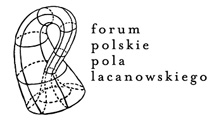Seminarium X: Lęk Jacquesa Lacana
SEMINARIUM Gregory’ego McCormicka w języku angielskim
o Seminarium X: Lęk Jacquesa Lacana
Lęk… dla filozofów takich jak Kierkegaard, Nietzsche i Heidegger i późniejszych, lęk, nazywany też trwogą, jest afektem naznaczającym relację współczesnego podmiotu z Bogiem, ze śmiercią Boga, albo (jak u Heideggera) z samą śmiercią. Klinika psychoanalityczna buduje różne teorie tego afektu, począwszy od przyczyn organicznych, związanych z neurologią, po sygnał wypartej traumy dziecięcej, żeby nie wspomnieć nasilających się skarg na depresję i stres. Co sprawia, że współczesne czasy stały się tak szczególnie podatne na wytwarzanie lęku jako afektu? Czy powodem jest to, że afekt lęku ma związek z bardzo specyficznym obiektem, objet a, który wprowadza podmiot w dezorientację, a poza tym wcale nie jest obiektem?
W Seminarium X: Lęk (1962-1963) Jacques Lacan przeprowadził najbardziej dogłębne badanie objet a, obiektu-powodu pragnienia. Opierając się na poprzednich seminariach, Przeniesieniu i Identyfikacji, Lacan poszerza, pogłębia i komplikuje swoje stanowisko na temat roli, jaką w teorii psychoanalitycznej odgrywają podmiot, pragnienie, popęd, język, ciało, afekt, lęk i Inny.
Jak zauważa Colette Soler: „obiekt, prawdziwy obiekt pisany a, nie ma nazwy. Jest przyczyną lęku właśnie dlatego, że jest anonimowy i nieznany. […] Seminarium L’angoisse podejmuje rozważania o obiekcie, który pojawił się na zakończenie Le transfert. Przechodzi ono od lęku podmiotu, konfrontującego się z zagadkowym pragnieniem Innego, zredukowanego do obiektu, który nie został wybrany, do ostatniej rany, zwróconej w stronę ojca jako zasady pozwalającej na pokonanie lęku, dzięki jego obiektowi, nie tylko określonemu, ale i nazwanemu. Patrząc na nasze czasy, widzimy znaczenie nadawane nazywaniu: tarczy przeciwko lękowi, która pozwala anonimowemu a przejść w narrację i historię; nazywanie, innymi słowy, przenosi nieznany powód pragnienia na inny obiekt, możliwy do nazwania.” (Colette Soler, Lacan: The Unconscious Reinvented. Tłumaczenie z francuskiego Esther Faye i Susan Schwartz. London: Karnac Books, 2014, p. 154; tłum. fragmentu na polski: JS).
W oparciu o pracę wykonaną przez Polskie Forum w latach 2012-2014 nad seminarium Lacana pt. „Przeniesienie”, będziemy zastanawiać się nad kwestiami popędu, pragnienia, objet a, podmiotowości, Ja i lęku (albo trwogi), do których Lacan odnosi się w Seminarium X.
Seminarium jest prowadzone w języku angielskim, co dwa tygodnie, w MiTo, ul. Waryńskiego 28.
Pierwsze spotkanie odbędzie się we wtorek 21 października o godzinie 20.30.
Daty kolejnych spotkań (z możliwością zmian):
4 listopada
18 listopada
2 grudnia
13 stycznia
SEMINAR in English by Gregory McCormick
on Jacques Lacan’s Seminar 10: Anxiety
Anxiety … for philosophers in the wake of Kierkegaard, Nietzsche and Heidegger, anxiety is the affect signalling the modern subject’s relation to God, to the death of God, and (with Heidegger) to death itself. In the psychoanalytic clinic, various theories of affect have ranged from organic causes pertaining to neuro-chemistry to an affect signalling repressed childhood trauma, not to mention the increasing complaints of depression and stress. What is it about modernity that has been particularly conducive to the production of anxiety as an affect? Might it be that this affect pertains to a very special kind of object, the objet a, that both disorients and that is no object at all.
Jacques Lacan’s Seminar 10: Anxiety (1962-1963) constitutes his most comprehensive exploration of objet a, the object-cause of desire. Building on his previous seminars, Transference and Identification, Lacan extends, deepens and complicates his treatment of the roles played in psychoanalytic theory and practice by the subject, desire, drive, language, body, affect, anxiety, and the Other.
As Colette Soler observes, the “object, the true object, the one written a, does not have a name. It is the cause of anxiety precisely because it is anonymous and unknown. […] The seminar L’angoisse starts with the object that marks the endpoint of Le transfert. It goes from the anxiety of a subject confronted with the enigmatic desire of the Other and the imminence of his reduction to the object that is not chosen, to the last lesion which turns to the father as the principle of overcoming anxiety, through his object, not only finite, but also named. In the terms of the times, we see the function given to nomination: it is a shield against anxiety in that it makes the anonymous a pass into narrative and history; in other words, it transfers the unknown cause of desire towards the nameable object.” (Colette Soler, Lacan: The Unconscious Reinvented. Translated from the French by Esther Faye and Susan Schwartz. London: Karnac Books, 2014, p. 154).
Following on from the work undertaken in Warsaw by the Polish Forum in 2012-2014 on Lacan’s seminar on Transference, we shall be exploring the issues of drive, desire, objet a, subjectivity, ego, and anxiety (or anguish) as Lacan addresses these issues throughout Seminar 10.
The seminar is conducted in English, bi-weekly, in MiTo, ul. Waryńskiego 28.
The first meeting: Tuesday, 21 October, 8.30 pm.
Next meetings (subject to change):
4 November
18 November
2 December
13 January
Gregory McCormick was born in 1959 in New Zealand. Prior to coming to Poland, he lectured in philosophy at universities in New Zealand and Australia. In addition to his graduate studies in philosophy, he studied and trained as a psychoanalytic psychotherapist at the Ashburn Clinic, Dunedin, New Zealand, and from 2004 until 2011 he was a student in the Master of Psychoanalysis programme of studies taught by the Australian Centre of Psychoanalysis in Melbourne.


